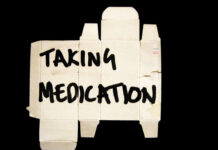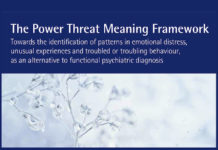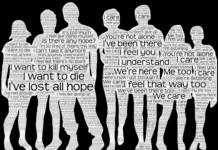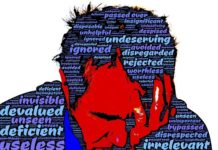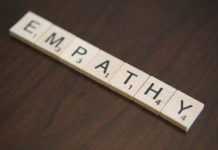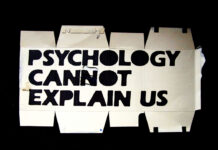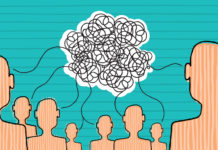The Effects of Practicing Psychotherapy on Therapists’ Personal Lives
A new study, published in Psychotherapy Research, explores how having a career in psychotherapy affects therapists’ personal lives.
Who Gets to Define “Peer Support?”
The definition of “peer support” should be straightforward. But over the years, “peer support” seems to have morphed into “peer specialist” — or, to put it more bluntly, psychiatric survivors’ experiential knowledge has been co-opted by the system. How does peer-developed peer support differ from the peer staff model? And what can we do about this?
United Nations Report Calls for Revolution in Mental Health Care
In a new report, the United Nations Special Rapporteur on the right to health, Dr. Dainius Pūras, calls for a move away from the biomedical model and “excessive use of psychotropic medicines.”
Study Finds Heavy Metal Music Beneficial to Mental Health
A new study highlights the role heavy metal music plays in the mental health of adolescents facing adversity.
Danish Study Finds Better 10-year Outcomes in Patients Off Antipsychotics
Study finds that 74% of patients with a psychotic disorder off antipsychotics at end of 10 years are in remission.
Victim Blaming: Childhood Trauma, Mental Illness & Diagnostic Distractions?
Why, despite the fact that the vast majority of people diagnosed with a mental illness have suffered from some form of childhood trauma, is it still so difficult to talk about? Why, despite the enormous amount of research about the impact of trauma on the brain and subsequent effect on behaviour, does there seem to be such an extraordinary refusal for the implication of this research to change attitudes towards those who are mentally ill? Why, when our program and others like it have shown people can heal from the effects of trauma, are so many people left with the self-blame and the feeling they will never get better that my colleague writes about below?
Study of Online Antidepressant Forums Reveals Long Lasting Withdrawal Effects
Effects of discontinuing SSRIs and SNRIs reported on an online forum indicate significant and long-lasting withdrawal symptoms.
Psychosocially Oriented Psychologists Struggle Against the Medical Model
Interviews with psychosocially oriented psychologists demonstrate their experiences of discomfort with the hegemony of the medical model in their place of work and the conflicts that arise when they attempt to provide alternatives.
New Study Examines User Experience of Discontinuing Psychiatric Medications
Researchers find that support and self-care were helpful for users during discontinuation, but that mental health professionals were not very helpful.
The Power Threat Meaning Framework One Year On
The team that developed the Power Threat Meaning framework as a diagnostic alternative reflects on the response to the framework after one year.
Belongingness Can Protect Against Impact of Trauma, Study Suggests
A new study explores feelings of belongingness as a protective factor for childhood trauma and adult mental health outcomes.
Combining Art Therapy and Mindfulness for Refugees
A new article, published in The Arts in Psychotherapy, describes the ways art therapy and mindfulness have benefitted refugees and asylum seekers in Hong Kong.
What Happened When I Went Off Meds and Onto Nutrients
I remember clearly thinking, “I’m done. I’m not putting myself through this again.” I wasn’t going to settle for the side effects of a marginally better than placebo treatment again. Here is a brief look into my rollercoaster journey of recovery, returning to work, having my trauma re-triggered, finding a way through, and finally living well.
Opening Doors in the Borderlands: An Interview with Liberation Psychologist Mary Watkins
MIA’s Micah Ingle interviews Mary Watkins about reorienting psychology toward liberation and social justice.
Deadly Serious: Talking Openly About Suicide
The suicide crisis is real. The pain is real. The deaths are real. None of us can afford to stick our heads in the sand and pretend that this isn't happening. But the helplessness and confusion about what to do about it are also real. And that's why peer relationships and peer-developed modalities can be so helpful. Many of us have been there and are still alive to talk about it. We know what ways of relating gave us hope and helped us to continue on.
Psychosocial Explanations of Psychosis Reduce Stigma, Study Finds
A review of mental health anti-stigma campaigns finds psychosocial models are effective in reducing stigma, while biogenetic models often worsen attitudes.
Study Finds Improved Functioning for ‘Schizophrenia’ Without Antipsychotics
Long-term treatment with antipsychotic drugs is currently considered the standard treatment for patients diagnosed with ‘schizophrenia.’ A new study challenges this practice, however. The...
Constructing Alternatives to the DSM: An Interview with Dr. Jonathan Raskin
Dr. Raskin discusses psychotherapists’ dissatisfaction with current psychiatric diagnostic systems and explores alternatives.
The Paradox of White Americans’ Mental Health
Are White Americans’ poor mental health outcomes caused by Whiteness?
Suicidal Tendencies, Part III: So, When Do I Get to Call the Cops?
What if the key to saving someone is to admit you are powerless to save anyone at all? What would that beckon us to change? A few years ago, I spent a substantial amount of time talking with a man who entered my life because someone in the mental health system told him I might be the one who could save him (or at least, that’s how he heard it). His name was David.
Therapist Empathy Predicts Success in Psychotherapy
An updated meta-analysis reveals that therapist empathy is a predictor of better psychotherapy outcomes.
Can Psychiatry Respond to Mad Activism?
Psychiatrist Mohammed Abouelleil Rashed explores a way forward for psychiatry in responding to the Mad activism of service users.
An Alternative Perspective on Psychotherapy: It is Not a ‘Cure’
Kev Harding argues against conceptualizations of therapy as a ‘cure’ to an ‘illness’ and instead offers alternative approaches.
Making Peer Counseling Radically Accessible
I imagined a world in which anyone can hit a button on their phone and be connected with a compassionate and empathetic listener, 24/7. So in 2019, I founded Peer Collective. Today, there are 30 peer counselors on the platform offering 30-minute counseling sessions for just $14.
Hearing Voices Network Launches Family & Friends Support Group
One of the HVN's fundamental principles is that "the person having these experiences is in the best position to decide or discover what they mean" and thus each person must "not try to speak for" another. The challenge for a family group will likely be for members to move past speaking about our loved ones to find or imagine the space where we ourselves are liberated.





